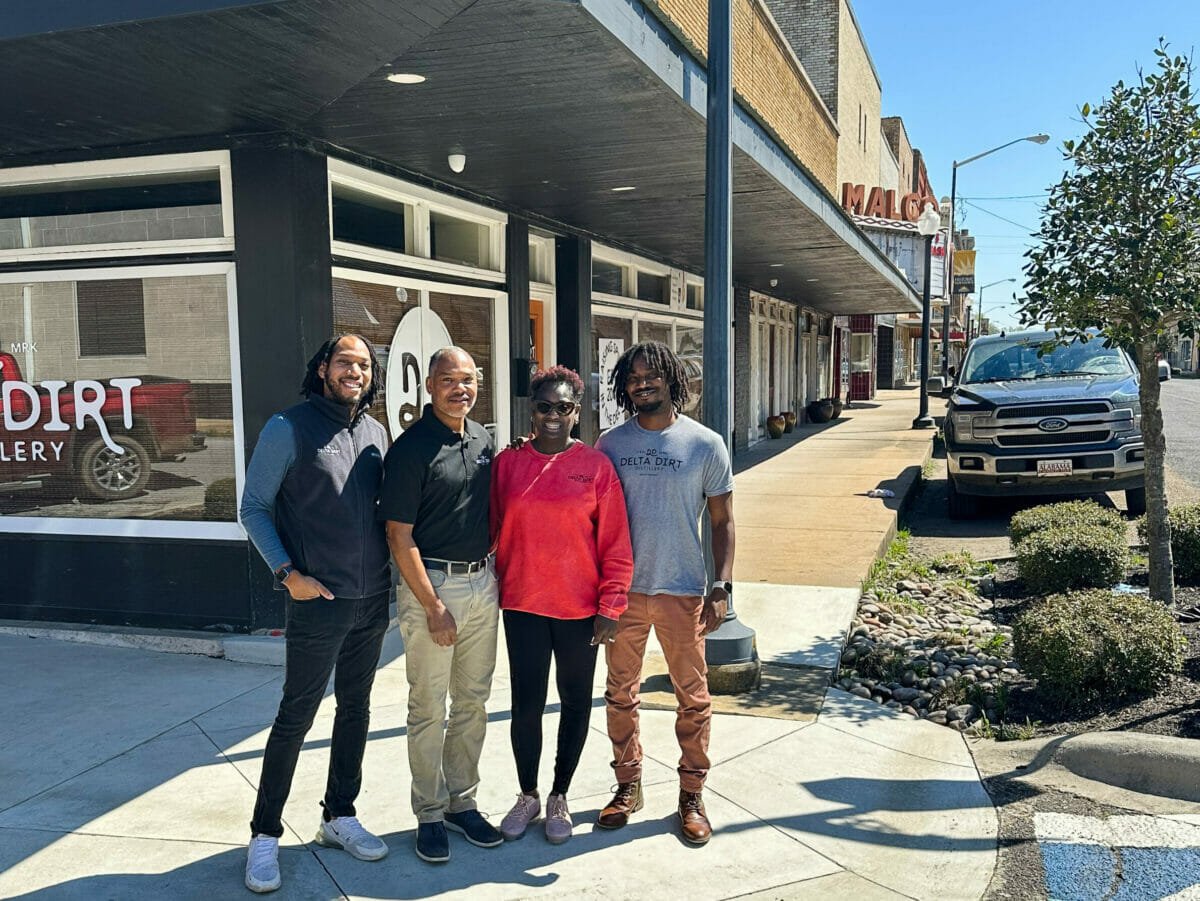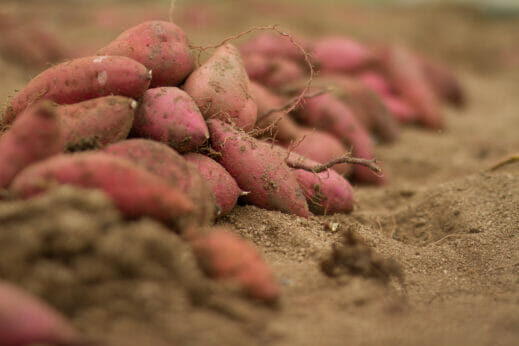The Williams family has maintained its Black-owned farming operation for four generations, thanks to a penchant for diversification.

The rich soil of the Arkansas Delta takes its minerals from the Mississippi River that winds in circuitous patterns between the state and its neighboring namesake. Prime farmland, it attracted countless farmers, including the Black farmers seeking to fulfill the promise of “40 acres and a mule” that followed the American Civil War. But Black farm ownership has dropped dramatically over the years, with just 1,500 estimated to remain in Arkansas today. Among those is the Williams family farm, a fourth-generation operation that has been able to beat the odds and find inspiration in an unlikely place: its own fields.
Sharecropper Joe Williams raised his family on a cotton and corn farm before passing it on to his son, UD, who was able to purchase the farm in 1949 thanks to the money he earned from cotton and homemade moonshine. It’s still run by the family today, now growing 100 acres of mostly sweet potatoes, the warm-climate vegetable that is an important staple in African American foodways.
But the process hasn’t always come easily. After the Civil War, the sharecropping period often involved predatory practices, including low wages and unsafe conditions. Landowners collected rent for the land as well as a percentage of the crops, while the farmers who worked it received only a small amount. In 1919, a nearby town in the Arkansas Delta was the site of the Elaine Massacre where hundreds were killed in a conflict that stemmed from a labor union meeting of Black sharecroppers.
By the late 1980s, farming became more difficult as equipment and material costs rose, causing many to close, including farmers. The USDA loan program was another source of discrimination as Black farmers were denied assistance for arbitrary reasons, resulting in the class-action lawsuit Pigford v. Glickman in 1999.
“Many farmers, especially Black farmers, got out of farming at that time or diversified … My dad chose to diversify and change over to more vegetable farming,” says Harvey Williams, the fourth-generation farmer who currently manages the farm with his brothers Andre and Kennard.
“I’m really grateful and proud that my dad was able to find a way to make a living with our small acres and his limited resources,” says Williams. “At the same time, I’m saddened that so many other Black farmers in the Delta were not as fortunate. Their reasons and conditions may vary, but the result ended the same—thousands of acres and hundreds of Black families are no longer living on nor farming their ancestral land.”

Sweet potatoes are a staple of African American foodways. (Photo: Shutterstock)
Williams took time away from the farm, taking a corporate job and moving across the country, then returned to Arkansas in 2016 to work for a company around two hours from Helena. But he still felt connected to the family business.
“I wanted to do something tied to the farm, and I didn’t know what that was going to look like. I just didn’t want to do traditional… I don’t know, crop farming, just driving tractors every day.”
His brother and late father, Harvey Sr., continued to farm sweet potatoes and, while at a 2016 farming conference, they learned about a farm in North Carolina producing sweet potato vodka.
“I got really intrigued and said, ‘We should do that.’ My brother was trying to get me to go into sweet potato pies and other things, but I really thought it would be a unique opportunity to produce a sweet potato vodka,” says Williams. “There’s not many on the market.”
He soon found out why that was the case when launching Delta Dirt Distillery, the first Black-owned distillery in the state.
“The process of extracting the fermentable sugars out of sweet potatoes is not an easy one. So we put a lot of effort into figuring that out,” says Williams, noting that it’s not as straightforward as producing vodka. “With sweet potatoes, the nuances really reside in the cook and mash processes. Sweet potatoes are known to be a hearty and nutritious vegetable, and the sugars extracted from them lend a unique and delightful hint of earthy sweetness to our vodka.”

Distilling vodka from sweet potatoes is more challenging than from regular potatoes. (Photo: Thomas Williams)
One thing working in the company’s favor is the fact that they grow their own sweet potatoes, allowing them to control the costs and quality.
“With enough research and effort, we figured out a way to create this product out of sweet potatoes and our corn. We grow both of those raw ingredients, which makes it even better,” he says. “We enlisted the help of industry consultants and a university professor. I still admit that sweet potatoes are not the easiest source for producing alcohol, but, over time, we were able to develop a process that met our expectations of delivering decent yields and exceptional taste.”
The Williams family bought a building in the quiet stretch of downtown Helena in 2017 and set about converting it into a distillery. The pandemic threw a wrench in their plans, but it gave them time to perfect their recipe, testing various methods until they produced a bottle that met their expectations in December of 2020. The tasting room followed, opening in April of 2021.
“People that come in will say, ‘Man, this doesn’t feel like Helena’ or, “This is something that could be in downtown New York,’” says Williams.

Delta Dirt’s tasting room opened in downtown Helena in 2021. (Photos: Thomas Williams)
The distillery has also benefited from community support as the pandemic allowed locals to see the progress and interest grew through word of mouth.
“They have really embraced the business. Not initially, especially the locals, they didn’t know what it was,’” he says. “Now we have a regular crowd that comes in, mostly on Friday evenings, and then the rest of the weekend, Saturday and Sunday, we have people from all over the state, and in some cases, all over the country, come and check us out.”
In addition to the original sweet potato vodka, which won Double Gold in the 2022 San Francisco World Spirits Competition, Delta Dirt also has gin and bourbon, all of which are available in Arkansas and parts of Texas, Mississippi, Pennsylvania and Tennessee.
The distillery is now a family operation, with Harvey’s wife Donna and sons Thomas and Donavan as head distiller and operations manager, respectively. Not only was the family able to diversify its agricultural offerings, but it has also continued the legacy started by Joe Williams to be passed onto the next generation.
“It was originally 86 acres, and we’ve kept that land,” says Williams.